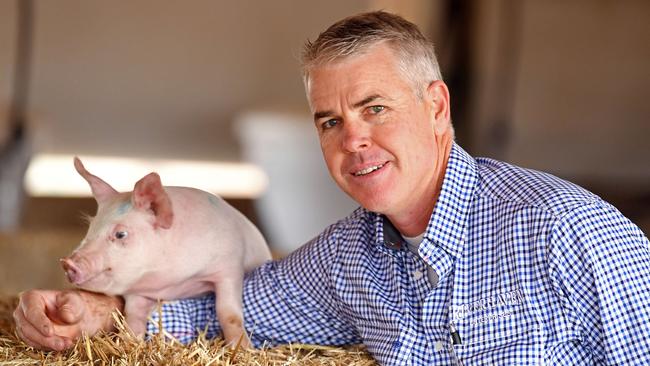Coronavirus travel restrictions cause worker issues for agriculture sector
Coronavirus travel restrictions are keeping agricultural worker overseas, leading to issues for the farming sector.

SA Business
Don't miss out on the headlines from SA Business. Followed categories will be added to My News.
- Coronavirus couple released from RAH
- Prizes, discounts, freebies: Check out the latest subscriber rewards
Coronavirus is keeping international students away from SA, but travel restrictions are also affecting the agriculture sector.
Last week, Prime Minister Scott Morrison confirmed Australia would extend its travel ban for visitors from China by one week.
Riverland pig farmer Mark McLean, from Top Multiplier Pig Farm, has workers stuck in China, due to travel restrictions put in place as a result of coronavirus.
“From a personal perspective, our overseas skilled workers are on working visas, for many of them we offer a pathway to permanent residency and it’s our intention to offer them long-term, full-time employment,” he said.
“But if they return home to visit friends or family, they’re travelling on their on their original passports.
“We have got two of our workers who have gone home on annual leave to see family, and while they haven’t visited Wuhan, with the passport they’re travelling with, they’re not able to return to Australia.”

Mr McLean said the situation was causing disruption to his business, especially with the uncertainty of when the workers can return.
“Even once they get into Australia, they won’t be able to return to our farm straight away,” he said.
“With the pork industry, we’re at significant risk from African Swine Fever. So, it’s our business policy to have seven days of quarantine once workers return from overseas, and not just China, but other countries like Indonesia or Thailand, to protect the health status of our stock. That’s not an industry standard, it’s our company position, to protect the business.”
Mr McLean said being two workers down from the farm’s team of nine full-time staff was a challenge for his business.
“I’ve had to cover the labour shortfall with backpackers and other help, and our full-time staff are also doing more work to help us through, which we really appreciate” he said.
MORE NEWS
Farmers band together to sell Kimba land
Lower tonnages expected for SA vintage
“(The workers stuck overseas) intended to have two weeks of leave and return to work after three weeks, but at this stage it looks like we might be without them for six to eight weeks.”
A new report put out by agribusiness specialist bank Rabobank shows coronavirus is also having an effect on the local wool market, with labour shortages due to travel restrictions. The wool market is also being affected by factory shutdowns that are expected to reduce Chinese import demand in the short-term.
For horticulture, the affects of coronavirus are a mixed bag. Fortunately the cherry industry air freighted most of its crop to China before the virus hit. In the next two to three months the main threat to exports of fruit and vegetable crops will be logistic, with demand from Chinese consumers for quality imported fresh produce not expected to fall.
